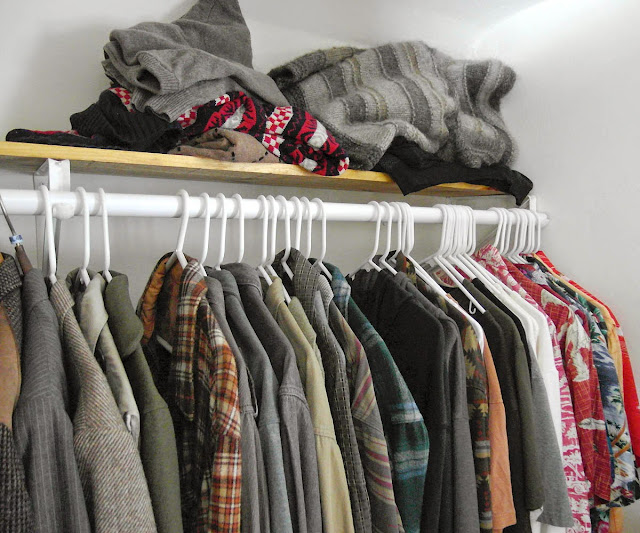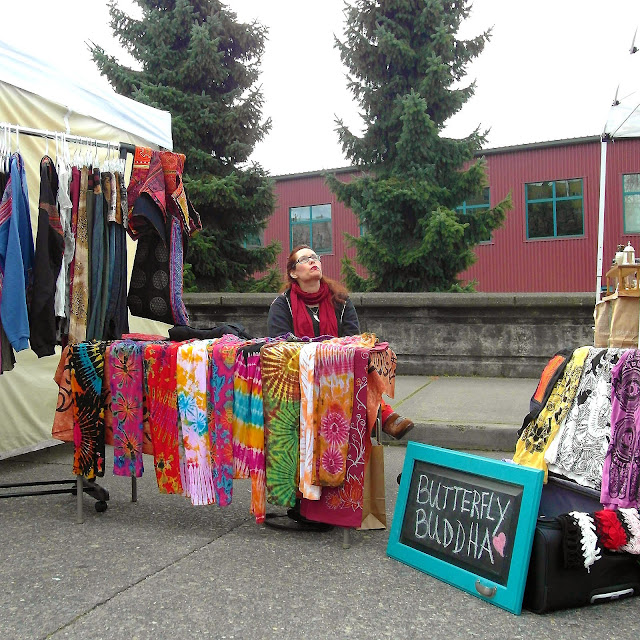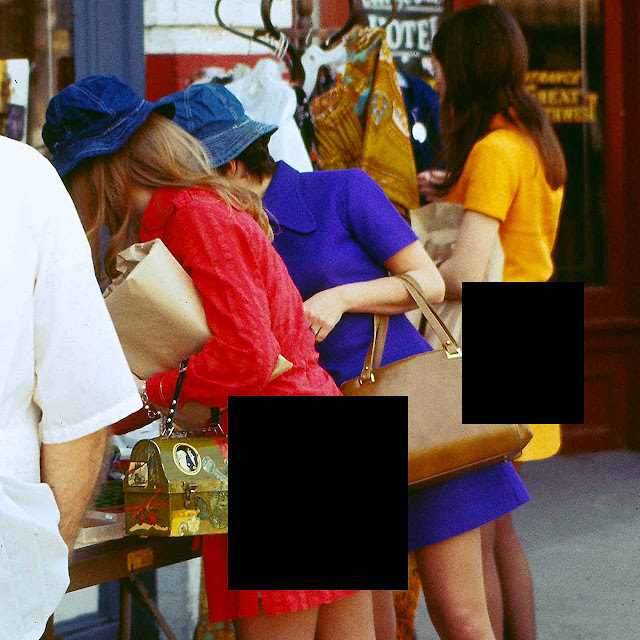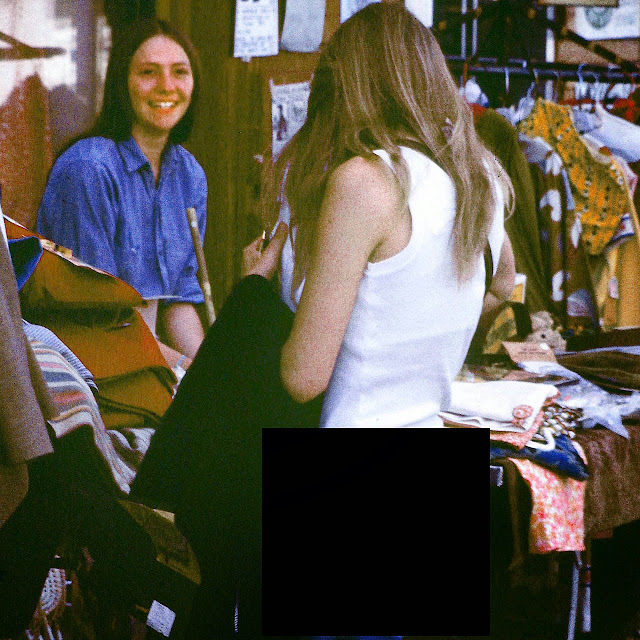The Ice Cave
This is chapter 19 of The Matriarchy, a serial fiction novel on FITK

“You be careful now Sean, those rocks can be slippery… ”
“I will, Uncle Henry,” Sean said as he scrambled ahead of his octogenarian grand-uncle.
Henry had brought him there as a ‘special surprise’ addition to their weekly trip to the Whippy Dip. The Decorah Ice Cave wasn’t much of a spectacle but it had been so much part of the local history that it had almost become legend. With Sean and his mother leaving for Washington D.C. in the morning, Henry knew that this chapter of Sean’s life would be ending and Henry, not much on flowery language or symbolic gestures, felt this was the best thing he could offer. Sean was already running up the staircase of rough-hewn limestone blocks which led to the path to the cave’s opening.
“Now you wait up, wait ’til I bring the flashlight,” said Henry.
Sean, who had already reached the entrance, was suddenly intimidated by the cleft in the bluff and its pitch-black interior.
“I’ll wait for you,” he called back.
As he climbed the steps leading to the cave, Henry could feel every one of his eighty-one years in his knees and feet.
“Good work boy. Only a fool rushes into the unknown without a guide. Give me your hand, lad, it’s a little steep at the entrance.” Henry said.
“Uncle Henry, did you go to the Ice Cave when you were young? Was it the same as it is now?” asked Sean.
“Oh, I’ve come here many times, sometimes just to cool off in the summer. It’s the same now as it ever was,” said Henry. He was going to tell the child that this was where he proposed to Alice, but thought better of it. Sean’s natural imagination would supply its own story. Taking the boy by the hand, they stepped inside. “Can you feel it Sean? It’s cold in here isn’t it?”
“Will we see any ice?”
“Maybe, it’s a little late in the season, sometimes the ice is gone by the end of July. It is still plenty cold though.”
They continued down, along a curving wall, and came to a fork in the path. To the left the path continued to slope down, quickly getting too small for even Sean to pass through without crawling. To the right it ended abruptly in a cave-in with the small passage behind it blocked by a grate and a hand painted sign which said ‘KEEP OUT.’
“Do you think someone died in there?” asked Sean, who was quite nervous now.
“No, I don’t think so, but someone might have hit their head on a rock. You can’t protect every fool from every little thing in life. Don’t you worry. Look here Sean, here’s some ice, and in August too! This whole hill is like a big freezer, it fills up with water from melted snow in winter days and freezes solid during cold nights. The pioneers used to store food here.”
“Can we go now, Uncle Henry?” said Sean, “I’m cold.”
“Sure, but go slow, it’s slippery.”
Sean pulled the car into the small parking area that was just west of the entrance to the Ice Cave. His grand-uncle Henry had taken him there when he was a boy and it had frightened him. Sean’s last visit was during the weekend of his mother’s memorial service. He had returned to this place to have a few minutes to himself. It wasn’t frightening then, it was strangely comforting—its limestone walls seemed to wrap around him. The way his mother’s arms had, in that first year in D.C., when he had been so sad. The double shock of living in a city and going to preschool had been overwhelming then.
Mary had just finished her Whippy-Dip and was getting out of her car.
“Do you think I really need this hoodie? It must be eighty-five,” she said, as she looked at the historical display which stood above the parking area.
“You’ll need it. And the flashlight. The entrance is over there,” said Sean, pointing to a small path leading from the parking area. “It isn’t far.”
As they approached the stairs which led to the cave, Mary let out a small gasp.
“Are you alright?” said Sean.
“I’m O.K., I just had a strange sensation there for a second. Sort of like double vision, or more like a double reality,” Mary said, “This may prove to be a more interesting place than I had thought.”
“You be careful now Mary, those rocks can be slippery… ” said Sean.
The couple climbed the steps and walked the short path to the entrance of the cave.
“You be the docent and I’ll be your tour group,” Mary said, handing Sean the flashlight, “Shall we begin?” They went a short distance into the cave, far enough to be out of view of the entrance. Sean began his ‘spiel’:
“Well, as you can see, the floor is slanted at compound angles, which, along with the moisture from condensation, creates a hazardous situation. In addition, the rough texture of the walls has caused many an intoxicated teenager to suffer embarrassing injuries.”
“Hold on a sec,” Mary said, “I’m getting those strange feelings again. Much stronger, this is really extraordinary. Hold me, I don’t want to fall.”
As Sean grasped Mary in his arms, the flashlight swung wildly on its tether.
“Turn off the light please, it’s jarring,” gasped Mary.
With the light turned off the cave was instantly plunged into blackness. Mary shivered in Sean’s arms.
“Hold me, Sean… oh… OH GOD, IT'S GLORIOUS!” Mary said, panting rapidly as she clung to Sean.
Her body was trembling, yet Sean felt an inner calm radiate from Mary, something he couldn’t understand. They stood together that way, in the dark, for several minutes. As Sean’s eyes became used to it, he could make out the faint glimmer from the cave’s entrance on the rocks beside him. When he looked down at Mary the skin on her face and hands seemed to be surrounded by a wispy bluish-white aura. His first thought was that it might be from condensation. When Mary had resumed regular breathing he spoke to her, quietly:
“Mary, are you there?”
“Um-hmm.”
“Mary, look at your hands.”
Emanating from her fingers were filmy threads of light, making small arcs between her fingertips before fading into the cool atmosphere of the cave.
“I see it, I know what it is. You can turn the flashlight on again,” she said.
Sean was somewhat surprised at how close to the bottom end of the cave they were. He had remembered it being longer. It was only a few steps further until they came to where the tunnel forked.
“This is about all there is to see… ” Sean said, pointing down the left tunnel, “… unless you want to start crawling.” He aimed the light at the blocked-off short tunnel.
“This is enough… for now,” said Mary, “I’m cold.”
Fiction





















